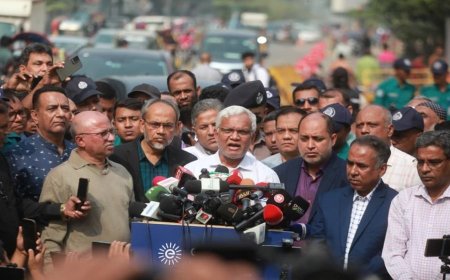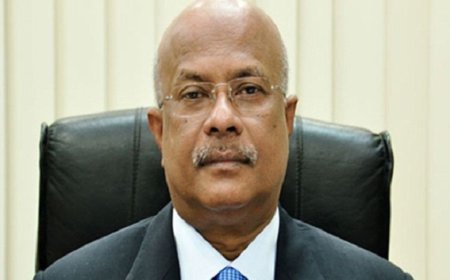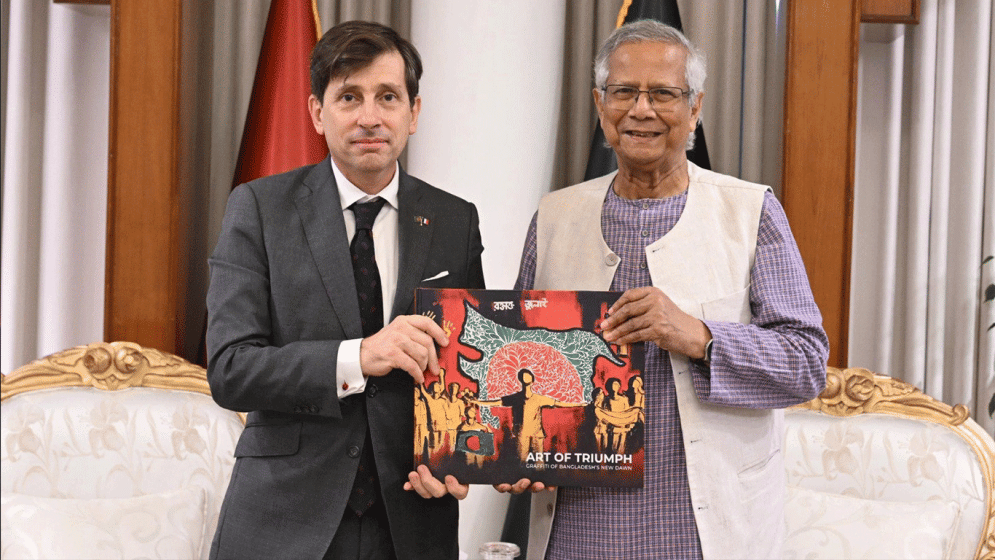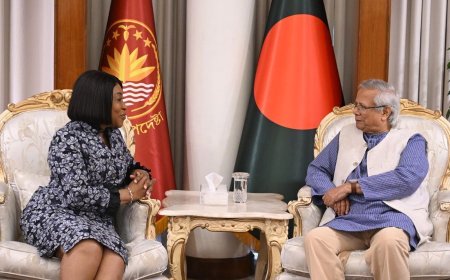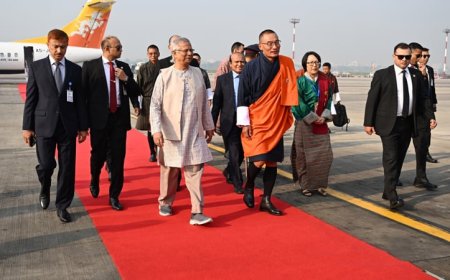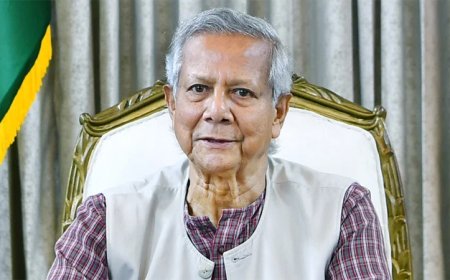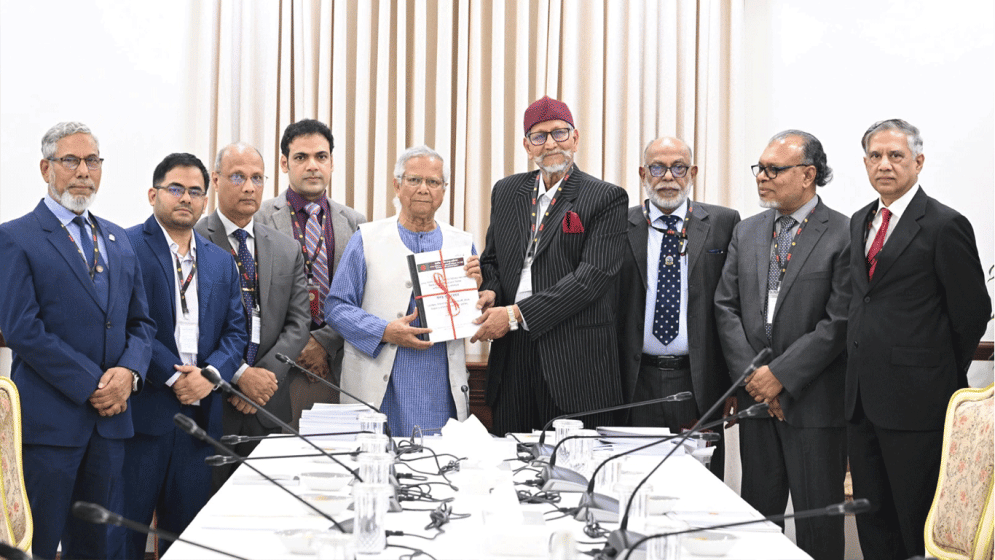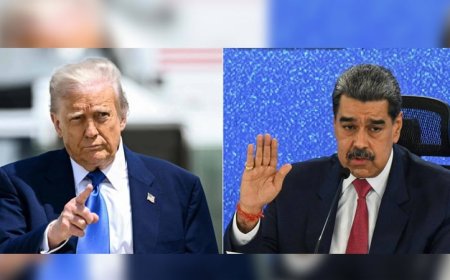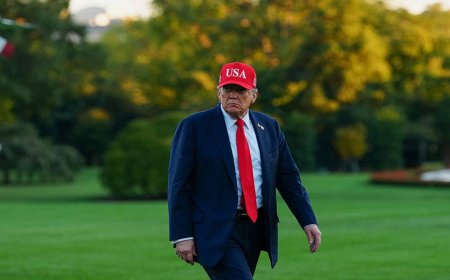Farhad Mazhar: Yunus’ Reform Agenda Has Already Failed
Farhad Mazhar: Yunus’ Reform Agenda Has Already Failed

Farhad Mazhar: Yunus Alienated the People Who Brought Him to Power
Political thinker and writer Farhad Mazhar has delivered a scathing critique of Chief Adviser Muhammad Yunus, accusing him of undermining the July Uprising that propelled him to leadership. According to Mazhar, Yunus, despite becoming a symbolic figure of the movement, has distanced himself from its grassroots spirit by seeking approval from political parties and foreign stakeholders.
Speaking on bdnews24.com’s “Inside Out,” Mazhar argued that Yunus’s lack of political experience has fractured the reform process, which he believes has already collapsed. “This is the consequence of political naivety,” Mazhar said. “He had no obligation to political parties—his mandate came directly from the people, not any party.”
Mazhar contended that the current interim government lacks both authority and legitimacy, and that Yunus’s strategies have alienated the very forces that led the mass uprising.

When the Awami League government fell on August 5 amid widespread student protests, Yunus was abroad. He returned three days later and assumed office as Chief Adviser. Mazhar was quick to clarify that Yunus was never a leader of the uprising but merely a symbol elevated by the people. “The students installed him—not any political party. His legitimacy comes from the people.”
He warned that Yunus’s alignment with political parties betrays the uprising’s grassroots nature. “No political party was behind this movement. People joined from the ground up. By legitimizing parties that were absent from the streets, Yunus has weakened popular agency and empowered discredited elements. That is unacceptable.”
Mazhar acknowledged that party-affiliated individuals did join the protests but emphasized they did so independently. “Many left their party identities at the door to join a united cause.”
Although Yunus enjoys international recognition as a Nobel laureate, Mazhar pointed out a key weakness: his disconnection from ordinary citizens. “He may be respected abroad, but he lacks an understanding of everyday life in Bangladesh. This disconnect leads to misguided decisions.”
Mazhar criticized Yunus for entertaining political parties’ concerns about elections rather than directly engaging with the people. “No one asked him to start an election debate. That was not the people’s demand—it was a distraction from the real issues of the uprising.”
He also condemned the inclusion of foreign nationals or dual citizens in government and reform roles. “This is not personal—some are my friends—but it’s a grave mistake to place foreign citizens in positions of authority in a sovereign state. Advisors, maybe—but not decision-makers.”
Mazhar rejected any portrayal of Yunus as a revolutionary leader. “He is not the hero of the uprising—he is its outcome. He ignored the demands of those who elevated him, and now they are disillusioned.”
While stating that Yunus should be defended when unjustly attacked, Mazhar insisted he must also be held accountable. “He needs serious political guidance. We are willing to offer that.”
Mazhar declared that the current reform effort is already a failure, and that meaningful change depends on the people, not a single figure. “If he fails, it doesn’t mean he’s a bad person. He’s trying. Since we supported his rise, we also have a duty to help him correct course.”
He also firmly opposed placing the interim government under the existing constitutional framework. “After such a mass uprising, a fully empowered transitional government was needed. Instead, we have a constitutionally bound administration with limited power—what I call a military-backed advisory setup.”
Without backing from the military establishment, Mazhar warned, the interim government lacks the strength to deliver reform.
He also criticized the makeup of Yunus’s reform commission. “These individuals were not present during the uprising. Who are they? Some even supported the U.S.-led ‘War on Terror.’ They don’t represent the people.”
Mazhar singled out National Security Adviser Khalilur Rahman, questioning his commitment to Bangladesh. “These are untested actors. We need political, not just technical, expertise after a popular revolt.”
In conclusion, Mazhar argued that Yunus’s reform agenda is failing because it has sidelined the people—the true force behind the uprising. “This wasn’t a political party movement. It was a people’s movement. His reforms are failing because he has chosen party politics over popular empowerment.”
What's Your Reaction?







